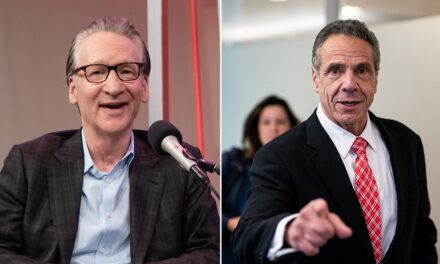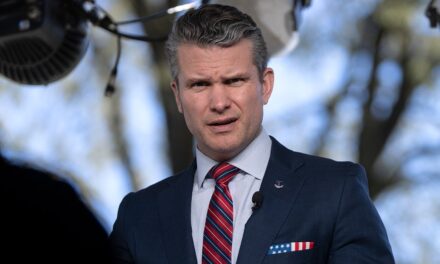In a surprising turn of events, an elementary school that had initially prohibited its students from performing Christian worship songs at a school talent show has decided to reverse this controversial decision. The school, located in a community with strong religious ties, faced significant backlash after emphasizing that such performances would not be allowed.
This incident began when a group of Christian students excitedly prepared for the upcoming talent show, planning to showcase their faith through music. Their selection included popular worship songs that are deeply meaningful to them, representing their beliefs and values. However, school administrators informed the students that these performances would not be permitted, citing a need to maintain a secular environment in line with institutional policies.
The news quickly spread among parents, community leaders, and local religious organizations, igniting a passionate debate surrounding the situation. Many parents expressed their discontent, voicing concerns about the school’s stance on religious expression, especially in a setting designed to celebrate student talent and individuality. The response to the school’s decision was overwhelmingly critical, with parents asserting that the ban infringed upon their children’s rights to express their religious beliefs.
Mary Johnson, a parent of one of the students involved, shared her thoughts on the matter. “This is about allowing our children to express themselves and share their faith openly,” she said. “A talent show should be an opportunity for students to shine, not be silenced. It’s important for them to feel free to express their beliefs in a supportive environment.”
As the outcry continued to grow, local religious organizations rallied around the students, advocating for their right to perform the songs of their choice, religious or otherwise. Church leaders emphasized the importance of faith in the lives of the youth and how such performances can foster a sense of community and belonging.
In response to the uproar, the school board held a meeting to address the concerns raised by parents and community members. During this meeting, many attendees voiced their opinions, leading to heated discussions about the balance between upholding secular policies and respecting students’ rights to religious expression. It became clear that the school’s original policy was not only controversial but also possibly undermined the very essence of what a talent show represents—a platform for students to showcase their unique talents and passions.
Faced with mounting pressure, the school administration began to reconsider its position. Discussions ensued regarding the educational implications of the ban, as well as the possibility of finding a more balanced approach that would allow for religious expression without favoring any particular faith. After several days of deliberation, the administration decided to officially allow Christian worship songs to be performed at the talent show, acknowledging the importance of diversity and inclusion in their decision-making process.
In an announcement made to the students and parents, the school’s principal stated, “We recognize the significance of faith to many of our students and their families. Our goal is to create an inclusive environment where everyone feels welcome to express themselves creatively. Allowing performances of Christian worship songs is a step towards embracing that diversity.” This acknowledgment was met with relief and gratitude from the community, demonstrating the power of collective advocacy and the importance of respectful dialogue about religious expression.
The controversy surrounding the talent show has ignited broader conversations about religious freedom in public schools. While the United States has a long-standing principle of separation of church and state, many argue that this should not completely stifle the expression of faith in public venues. Advocates maintain that the rights of students to express their beliefs do not negate the school’s commitment to fostering a positive learning environment.
As the newly empowered talent show approaches, excitement is palpable among students and families. The school hopes to create a balanced program that shows respect for various backgrounds while providing students the opportunity to share what is important to them. Teachers are encouraging participants to showcase a variety of talents, be it musical, artistic, or dramatic, ensuring everyone has a platform to shine.
This incident also serves as a reminder of the diversity of beliefs inherent in American public schools. Students from myriad backgrounds come together, bringing their own traditions, customs, and values. Encounters that foster understanding, acceptance, and respect for one another’s beliefs are crucial in nurturing community ties and promoting harmony.
In retrospect, the elementary school’s initial ban demonstrated the complexities surrounding the interpretation of policies related to religious expression. The episode has prompted schools across the region to reassess their guidelines to ensure they align better with the principles of inclusivity and support for all students, regardless of their faith or lack thereof.
This development highlights the ongoing need for schools to develop clear guidelines that delineate boundaries, allowing for a balanced approach to religious expression within public institutions. Dialogue between school officials and the community remains key to navigating these sensitive issues effectively, particularly as schools strive to cater to diverse student bodies.
As the talent show date nears, attention is now focused on the variety of performances slated for the event. All students will have the chance to showcase their individuality and artistry, which will not only entertain their peers and families but also demonstrate the strong spirit of community within the school. Performances of Christian worship songs and other genres will unite students, highlighting their differences while celebrating their unique talents.
Ultimately, this situation serves as a significant case study in the intersection of education, community values, and the expression of faith. By prioritizing open conversations and allowing students freedom of expression, schools can provide a more supportive environment that honors diversity while adhering to democratic principles of fairness and respect.
As the elementary school gears up for the talent show, anticipation builds within the community, representing a win for student rights and religious freedom. The unfolding story may serve as an example for other educational institutions grappling with similar issues. It reaffirms the belief that when communities come together to advocate for what they believe in, positive changes can be achieved, fostering an environment where all individuals feel empowered and valued.
































